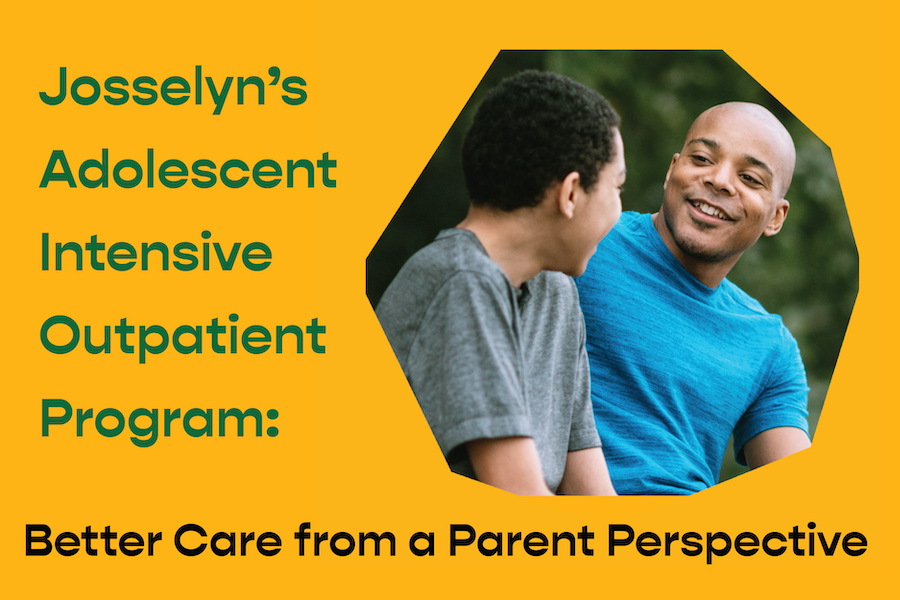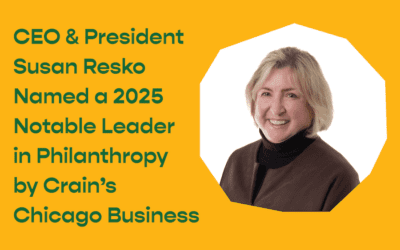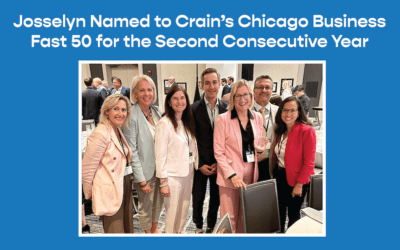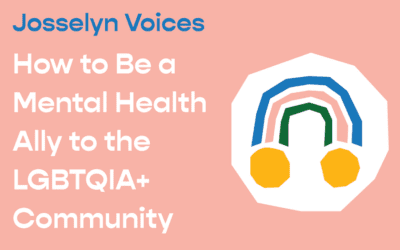Better Care from a Parent Perspective
By Susan Resko
August 11, 2022
I’ve honestly lost count, but between my three children, I think they participated in at least seven different IOP programs while in their teens. The glass-half-full side of me is thankful that they had access to treatment, and that they are thriving today. I push down the thoughts that sometimes bubble to the surface about why all three of my kids were cursed with a genetic predisposition to depression and anxiety, and instead, use my experience to help others and make the process even better.
So it’s no wonder that Josselyn’s IOP has deep meaning for me. I’m incredibly grateful Josselyn is providing this life-saving treatment in a young person’s life when things are going off the rails. Our goal is to right the ship and get them back on the path of success.. Especially in the wake of the pandemic, when the Surgeon General has declared a Youth Mental Health Crisis, this program launch could not have been timelier.
As a parent who has done this a few too many times, I wanted to share with you what makes Josselyn’s IOP especially wonderful and highlight the many attributes that I wished for when my kids needed intensive support.
Top Ten Reasons Why I Love Josselyn’s IOP
1. Weekly Visits with a Psychiatric Provider: Every participant receives a full one-hour psychiatric evaluation and a minimum of weekly 30-minute sessions. When needed, some teens can see a provider twice per week. This is quite simply amazing and unheard-of care. Even residential treatment centers which provide the highest level of care for acute cases don’t provide this high level of access to medical professionals.
2. Most Forms of Insurance Accepted, including Medicaid: Numerous studies around the world have found a relationship between socioeconomic status and mental health. There are higher rates of mental illness in groups with lower socioeconomic status, and yet, there is not another provider of adolescent IOP services for Medicaid recipients within an hour’s drive of Josselyn. Parents who have private insurance should be able to use this insurance, and not pay out of pocket upwards of $500/day for a six-week program.
3. Customized Curriculum: Each week the IOP team reviews the needs of the teens currently in program and customizes the curriculum to meet those needs. Participants don’t just cycle through a six-week curriculum, but instead, we review and adapt the curriculum for a truly custom-tailored plan.
Daniel Herrera Dent, a bilingual Group Therapist at Josselyn, characterizes the common progression of IOP clients, “On day one, it’s ‘I don’t want to be here. This is dumb. This doesn’t work.’ But by the last day, teens ‘don’t want to leave the program.’ They learn healthy coping skills and more about themselves. They play more of an active role in their mental health.”
4. Continuity of Care/Easier Transitions: So many times I would be told to expect a six-to-eight-week program for my child, only to be called a week or two early from an IOP provider, saying, “Your insurance will no longer be covering your child’s service, so we will be discharging your child tomorrow.” Then, I was handed the names of a few therapists to call and schedule after care. If the therapists on the list were even taking new patients, we often had to wait several weeks, all the while my child went without care, at a very critical and precarious point in our lives. I had to play case manager and transfer all the history to the new therapist. I equate this to getting a cast on a broken leg, and then being told, “Go find someone who can remove the cast and provide physical therapy.”
At Josselyn, if the participant doesn’t have an outpatient therapist, the teen is introduced to a Josselyn therapist who specializes in meeting the teen’s unique needs. The case notes are all stored in the same Electronic Medical Record, so there is no downtime during the transition. The IOP team and therapist are colleagues and work collaboratively to insure a smooth transition.
5. Easy “Tune-ups”/ Booster Sessions: If a teen starts to lose ground and needs reinforcement, Josselyn’s IOP team works to make the “tune-up” seamless and easy. If the client is seeing a Josselyn therapist, this is especially true since they are colleagues. It can be a shorter stay depending upon the teen’s needs when returning to IOP.
6. Highly Qualified Staff: Our IOP staff each have years of experience; this is not their “first rodeo.” Because IOP is a higher level of care, we hire staff who are experienced in residential, partial hospitalization, or intensive outpatient treatment. These therapists are well qualified and care deeply about the teens. The teens are not just a number to process through quickly.
7. Concierge-like Treatment: One of the many examples of how much our staff cares is that they meet the teens at their car doors and walk them inside, and then escort them back to the cars for a quick check-in with Mom and Dad. Since this is a time of great worry for parents, it is so reassuring to have that 30-second check in. It’s not uncommon for me to see one of our therapists sitting on the curb of the parking lot, waiting for Mom or Dad and chatting with the teen. It makes me smile and does my heart good every time I see this caring moment! Even when a teen takes the Pace bus to IOP, a therapist walks the client back and forth to the bus stop down the block each day.
A past client of Josselyn’s IOP shares their experience with this level of care, “Before I came to Josselyn, I was really struggling to stay motivated in school, at home, with friends – really in all areas of my life. I didn’t want to go to an IOP and resisted everything at first. Then, when I realized how much Josselyn cared about me, I felt safe and let my guard down… I made real connections with the other teens and with the Josselyn staff. Josselyn’s IOP saved my life.”
8. Weekly Art Therapy: Okay, let’s be honest, IOP is not a teen’s idea of a fun day. They are removed from their comfort zones for a good portion of the day and it’s hard work to learn new skills to cope with challenges that have derailed their young lives. We bring in art therapy each week so the kids can have a break from talking about their biggest challenges, and instead express these feelings through art. Research indicates art therapy can improve communication, concentration, reduce feelings of isolation and lead to increased self-esteem, confidence, and self-awareness.
9. Weekly Family Therapy: So many times, parents have been blamed for their child’s mental health challenges, and they may naturally feel a bit defensive. But just like when parents attend a child’s physical therapy session so they can practice the exercises at home, it’s important for parents to be part of the therapeutic healing process, learn the skills that their child is learning, and work to support their child through the challenges they face in health and therapeutic ways. This is why weekly family therapy is a requirement of Josselyn’s IOP program. Participating in family therapy doesn’t mean that parents are “bad” on the contrary, it means that they are good parents who want to learn how to best help their child.
10. Transportation: Transporting kids to sports, lessons, and school takes a lot of time and coordination. Imagine being a single parent working two part-time jobs with no regular shifts, having two other younger kids at home while trying to get your child to IOP treatment 45 minutes away three days per week for six weeks. It can come down to quitting your job (which isn’t an option), or letting your child go without needed treatment. Transportation is just one more barrier to treatment. So, I’m very happy to announce that later this year, Josselyn will begin to transport those teens who would not otherwise be able to attend our IOP.
For more information about Josselyn’s IOP, call Shannon Garrison, LCPC, Director of IOP Services at 224-255-6628




